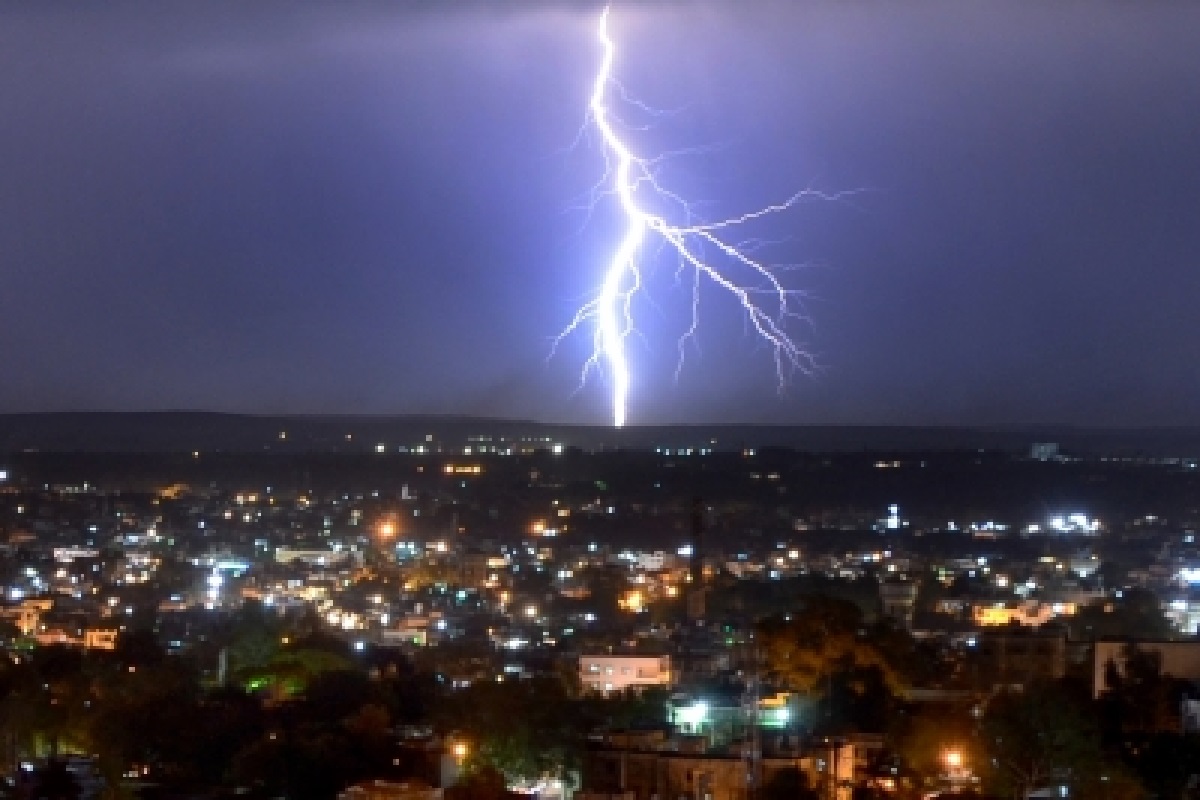Severe thunderstorms rolled into Australia’s most populated city Sydney, bringing about damaging lightning and gusts that disrupted the daily life of local residents.
From 11:00 a.m. local time on Saturday, Australia’s Bureau of Meteorology (BOM) began updating severe thunderstorm warnings roughly every 20 minutes, alerting people to the fast-moving storm cells that could cause damaging winds, large hail and heavy rainfall, Xinhua News Agency reported.
Advertisement
A 92 km/h wind gust was recorded at Sydney Airport at 06.41 p.m. local time, while in Moss Vale, about 142 km southwest of Sydney, the speed of wind gusts reached 106 km/h.
The thunderstorms also triggered warnings over possible fire incidents, as local authorities were concerned that lightning associated with these storms may start fires. The New South Wales (NSW) Rural Fire Service reported that of more than 30 fires burning, only seven are yet to be contained.
After the thunderstorms started sweeping through Sydney, power lines and public transportation, including flights, were put under great pressure, with a world-level sports event forced to face cancellation due to chaos generated by the extreme weather.
According to Ausgrid, a major electricity distributor on Australia’s east coast, from 06:40 p.m. local time on Saturday to midnight, more than 70 unplanned power outages were reported across over 60 suburbs across the city, with at least 14,000 people affected. Along with those in Newcastle, Hunter and Central Coast, 30,000 customers in total had a Saturday night without power.
“Ausgrid crews are continuing to work to make extensive repairs after last night’s storm to safely restore the power to those 5,000 properties still impacted,” the company said on social media, also posting photos of trees downed by the storm and damaged power infrastructure.
Trees and fallen powerlines hit by howling winds also resulted in road closures and travel delays. In Sydeny’s Metropolitan area, numerous traffic lights either blacked out or flashed yellow due to local power failures.
The NorthConnex tunnel in both directions as well as all westbound lanes on Forest Road were closed due to power failures. As of Sunday morning, all lanes have reopened, with trees cleared and lines repaired.
Multiple lines of Sydney’s train system called on travelers to allow extra travel time and check information apps before getting on trains, as the severe weather conditions resulted in trees blocking tracks and urgent equipment repairs.
Besides, the QF28 flight of Australia’s national carrier Qantas, which departed from Santiago, Chile, had to divert to Newcastle, as the thunderstorms made it unable to land smoothly at Sydney Airport.
A passenger told local media that it was the bumpiest flight he had ever encountered and that a crew member had described it as “extreme.”
“A lot of us have been on flights that were bumpy, but that was on another level,” John Myers was quoted as saying by the Sydney Morning Herald.
Also on Saturday, the Season Three of Sail Grand Prix (SailGP) returned to the iconic Sydney Harbor for a two-day racing participated by nine national teams, including two-time defending champions Australia. Day one saw France crowned on top of the leaderboard with three race wins, with the United States coming in second and Australia third.
When the home crowd was expecting Australia back to its good form in the following day, an official statement from the SailGP organisers confirmed that the Sydney event had to be canceled.
“A major weather event occurred that has resulted in significant damage to the wings and sails and at least one boat at the SailGP technical site. As far as we know, no one was seriously injured during the incident,” said the SailGP statement.
“A full assessment of the damage is underway but it is likely some of the future SailGP events may also need to be delayed,” it added.
A video from social media showed that Canada’s F50 Catamaran fell victim to ferocious winds during the process of being craned onto the technical base from the water. Hung in midair, the boat’s wing sail was smashed by the winds and shed smithereens before touching down on the ground.











